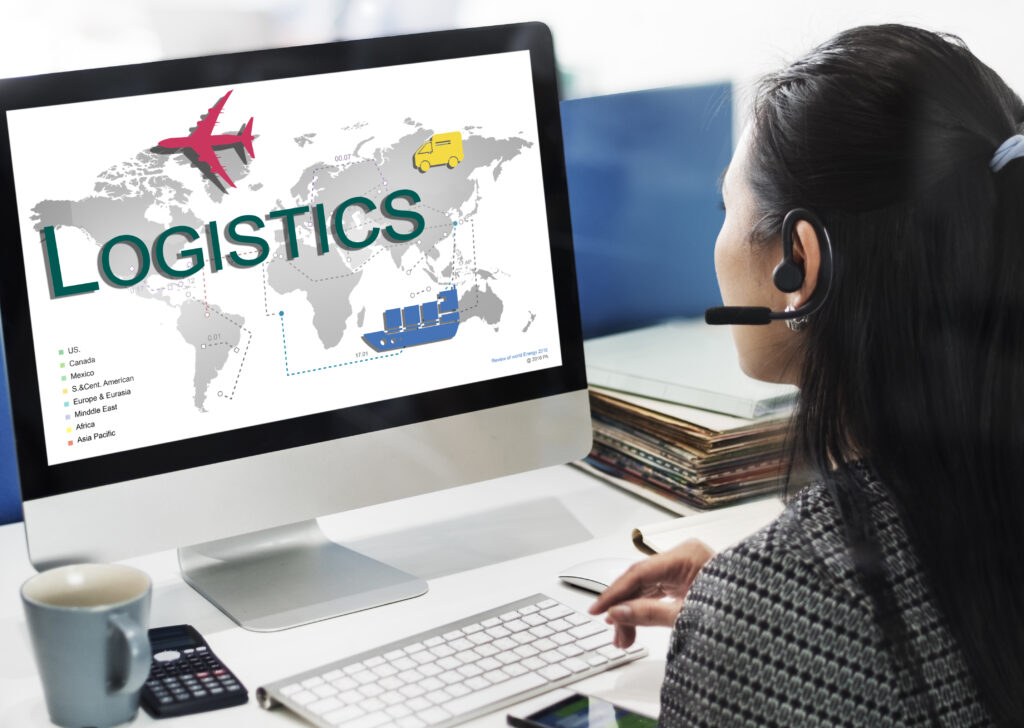In today’s competitive global marketplace, businesses are increasingly turning to outsourcing as a strategic move to streamline operations and reduce costs. One critical area where companies are seeing significant benefits is logistics. Outsourcing logistics involves hiring third-party service providers to manage the transportation, storage, and distribution of goods, allowing businesses to focus on their core competencies. Let’s dive into the benefits, challenges, and steps for outsourcing logistics in business, and how it can transform business efficiency.
What is Outsourcing Logistics?
Outsourcing logistics refers to delegating some or all of the logistics operations to third-party logistics (3PL) providers. These providers handle everything from warehousing and inventory management to shipping and delivery. By leveraging the expertise and resources of logistics partners, businesses can optimize their supply chain without having to invest heavily in infrastructure, technology, or manpower.
What Are the Benefits of Outsourcing Logistics in Business?

- Cost Savings: One of the most significant benefits of outsourcing logistics is cost reduction. Managing an in-house logistics operation can be expensive due to the need for warehousing, vehicles, technology, and a dedicated team. 3PL providers often have large networks and established systems, allowing them to offer cost-effective solutions. Additionally, outsourcing eliminates the need for capital investment in logistics infrastructure, reducing overhead costs.
- Focus on Core Competencies: By outsourcing logistics in business, you can concentrate on the core activities like product development, marketing, and customer service. This focus on core functions helps businesses grow, innovate, and improve their overall competitive advantage while leaving the logistics experts to handle the supply chain complexities.
- Improved Efficiency and Scalability: Third-party logistics providers use advanced technologies and logistics management software to enhance efficiency. They have established relationships with carriers and shipping partners, often resulting in faster and more reliable delivery services.
- Access to Expertise and Advanced Technology: Logistics providers specialize in supply chain management and stay updated with the latest trends, technologies, and best practices. Businesses can tap into this expertise without having to invest in training or systems. Advanced tracking systems, data analytics, and automation tools are often available when outsourcing, leading to better decision-making and greater operational transparency.
- Risk Mitigation: Logistics is a complex field fraught with potential risks, including delivery delays, damage, theft, and fluctuating fuel prices. Outsourcing logistics shifts many risks to the 3PL provider, as they assume responsibility for ensuring smooth transportation and delivery. Moreover, these providers often have risk management strategies to handle issues like customs clearance or disruptions in the supply chain.
- Global Reach: Many logistics companies have an extensive network that allows businesses to expand into new markets, offering international shipping and expertise in navigating customs and trade regulations.
- Flexibility in Services: Outsourced logistics providers can offer customized services, such as handling returns, managing inventory, or processing orders, which can be tailored to the specific needs of the business.
- Faster Market Entry: Leveraging the infrastructure and network of a 3PL can help businesses enter new markets faster by providing ready-to-use logistics solutions, reducing the time to market.
- Improved Customer Service: Efficient logistics providers can improve delivery times, optimize shipping routes, and provide better inventory management, leading to enhanced customer satisfaction.
Top Challenges of Outsourcing Logistics

- Loss of Control: When outsourcing logistics in business, businesses relinquish some control over the supply chain. This can make it difficult to monitor performance or make quick adjustments. It’s essential to establish clear communication and service-level agreements with logistics partners to ensure smooth collaboration.
- Data Security: With the use of third-party systems for managing shipments and inventory, data security becomes a concern. Sensitive information related to shipping routes, suppliers, and customer details may be shared with external vendors. Businesses should ensure that their logistics partner have robust security measures in place.
- Reliability and Quality Concerns: Not all logistics providers deliver the same level of service. Poor logistic management by a third party can result in delays, damage to products, or unsatisfactory customer experiences. It is crucial to conduct thorough research before partnering with a 3PL provider and regularly monitor their performance to mitigate these risks.
- Customer Experience Disconnect: When a third-party logistics provider manages the customer-facing aspects of delivery and shipping, there can be a disconnect between your brand’s customer service standards and the actual experience provided. This may result in customers associating poor delivery experiences with your brand.
- Hidden Costs: While outsourcing logistics in business can reduce overhead, there may be hidden or unforeseen costs. For instance, additional fees for handling special requirements, fluctuating fuel surcharges, or penalties for not meeting volume commitments. These extra expenses can add up and erode potential savings.
- Integration with Internal System: Integrating a third-party logistics provider’s technology with your internal systems can be challenging. Differences in inventory management systems, tracking tools, or order processing systems can create inefficiencies and communication gaps.
- Cultural and Operational Differences: Cultural and operational differences between your business and the logistics provider can result in miscommunication or mismatched priorities. For example, a provider may prioritize cost-cutting, while your business might focus on maintaining premium service.
- Inflexibility in Service: Outsourcing logistics can limit a company’s flexibility. For instance, if a business experiences seasonal spikes in demand or needs to adjust shipping processes to accommodate a new product line, it might find that its logistics provider is unable to adapt quickly enough to meet these changes.
- Dependency on the Provider: Outsourcing logistics creates a level of dependency on the 3PL provider. If the provider faces financial difficulties, labor strikes, or other disruptions, your supply chain can be negatively impacted. A provider’s failure to deliver can lead to costly delays and damaged relationships with your customers.
- Geographical Limitations: Some logistics providers may not have the necessary infrastructure or network to handle global distribution efficiently. This can limit a business’s ability to expand into new markets or may lead to increased shipping times and costs.
Top 10 Companies for Outsourcing Logistics in Business in USA

Outsourcing Buddy
- Location: Sunrise, Florida
- Overview: Outsourcing Buddy is one of the outsourcing companies in Florida offering a wide range of solutions. They focus on technology-driven logistics, providing advanced tracking systems and a large fleet for transportation needs. Moreover, they offer a wide range of tailored services like digital marketing, image optimization, video production, designing services, and more. Contact their team and get more details about your logistics business.
UPS Supply Chain Solutions
- Location: Atlanta, Georgia
- Overview: A division of the global giant UPS, this company provides comprehensive logistics services, including freight forwarding, warehousing, and distribution. They have a vast global network and leverage cutting-edge technology for inventory management and real-time tracking. UPS is a go-to provider for companies looking for integrated logistics and transportation services.
DHL Supply Chain
- Location: Westerville, Ohio
- Overview: DHL is known for its international reach and is a leader in contract logistics. Their services include warehousing, distribution, packaging, and freight management. DHL operates over 400 facilities in the US, focusing on sectors such as healthcare, technology, and consumer goods. They emphasize sustainability and efficiency in logistics operations.
C.H. Robinson
- Location: Eden Prairie, Minnesota
- Overview: C.H. Robinson is one of the largest third-party logistics (3PL) providers in the world, offering transportation, warehousing, and supply chain management services. With a network of over 280 offices globally, the company excels in freight management, including multimodal transport services like air, sea, and land shipping.
FedEx Supply Chain
- Location: Memphis, Tennessee
- Overview: As part of the FedEx group, FedEx Supply Chain offers tailored solutions, including warehousing, order fulfillment, transportation, and reverse logistics. They cater to a wide range of industries, including healthcare, retail, and technology, and utilize state-of-the-art technology for enhanced supply chain visibility.
Ryder Supply Chain Solutions
- Location: Miami, Florida
- Overview: Ryder provides end-to-end logistics services such as transportation management, warehousing, and distribution. The company has a vast network of warehouses across North America and offers specialized logistics for industries such as automotive, electronics, and consumer packaged goods. They are known for its fleet management and supply chain optimization services.
Expeditors International
- Location: Seattle, Washington
- Overview: Expeditors International is a global logistics company specializing in freight forwarding, customs brokerage, and supply chain solutions. With a strong presence in the US and abroad, they are known for its expertise in global trade compliance and efficient logistics operations across air, sea, and land.
J.B. Hunt Transport Services
- Location: Lowell, Arkansas
- Overview: J.B. Hunt is a transportation and logistics company that offers trucking, intermodal, and dedicated contract services. They provide comprehensive transportation management systems (TMS) and focus heavily on e-commerce operations, retail, and food and beverage logistics. With an extensive fleet and tech-driven solutions, they are a key player in US logistics.
Americold Logistics
- Location: Atlanta, Georgia
- Overview: Americold is a leading provider of temperature-controlled warehousing and logistics. Specializing in food logistics, they operate over 180 warehouses in North America, ensuring cold chain integrity from production to end customer. Their services include warehousing, transportation, and automated inventory management solutions.
Kuehne + Nagel
- Location: Jersey City, New Jersey
- Overview: Kuehne + Nagel is a global logistics company offering air and sea freight services, contract logistics, and supply chain solutions. In the US, they are particularly strong in freight forwarding and global logistics, serving industries such as pharmaceuticals, automotive, and consumer goods. Kuehne + Nagel is known for its strong technology platform and expertise in handling complex supply chains.
Conclusion
In conclusion, outsourcing logistics in business offers businesses a strategic advantage by providing access to specialized expertise, advanced technology, and scalable solutions.
While challenges such as loss of control, data security risks, and hidden costs exist, the benefits, including cost savings, improved efficiency, and global reach, often outweigh the drawbacks.
Partnering with a reputable logistics provider can optimize supply chain management, enabling businesses to focus on core operations.
The top logistics companies offer diverse services tailored to various industries, ensuring that businesses can find the right fit for their needs. So, schedule a brief meeting with them and carefully select Them. By doing so and collaborating with these top providers, you can enhance your logistics operations and drive long-term growth.
Frequently Asked Questions
Question: What is outsourced logistics?
Answer: Outsourced logistics involves hiring a third-party logistics (3PL) provider to handle various aspects of a company’s supply chain, including transportation, warehousing, inventory management, and order fulfillment. This allows businesses to focus on core operations while benefiting from the expertise and infrastructure of logistics specialists.
Question: What are the main benefits of outsourcing logistics in business?
Answer: Outsourcing logistics offers several benefits, including cost savings, access to advanced technology, improved efficiency, and the ability to scale operations as needed. It also helps businesses expand their global reach, manage risks, and enhance customer service through faster and more reliable deliveries.
Question: What challenges might businesses face when outsourcing logistics?
Answer: Businesses may encounter challenges such as loss of control over their supply chain, service quality variability, hidden costs, data security concerns, and difficulties integrating their systems with the 3PL provider’s technology. Effective communication, careful provider selection, and clear contractual agreements can mitigate these issues.
Question: How do I choose the right logistics provider for my business?
Answer: To select the right logistics provider, assess your business’s specific needs, such as the scale of operations, geographical reach, and industry requirements. Evaluate potential providers based on their experience, service offerings, technology capabilities, and track record in delivering reliable and efficient logistics services.
Question: What industries benefit the most from outsourcing logistics in business?
Answer: Industries that benefit most from outsourcing logistics include retail, healthcare, automotive, food and beverage, and technology. These industries often require complex supply chains, specialized storage and handling, and efficient transportation, making them ideal candidates for third-party logistics solutions.


Heya! I’m at work surfing around your blog from my new iphone! Just wanted to say I love reading through your blog and look forward to all your posts! Carry on the great work!
Thank you for reading our blogs and share your thoughts.
Thanks for every other magnificent post. The place else could anybody get that kind of info in such a perfect means of writing? I’ve a presentation subsequent week, and I’m on the look for such info.
Thanks for reading! I’m glad found the post helpful.
Hey there, You have done a fantastic job. I will certainly digg it and personally recommend to my friends. I’m confident they’ll be benefited from this site.
Thank you for your kind words. This means a lot. Keep reading.
Hello there, just became alert to your blog through Google, and found that it’s really informative. I’m gonna watch out for brussels. I’ll appreciate if you continue this in future. Lots of people will be benefited from your writing. Cheers!
Thank you for your kind words. Our team will definitely work on it.